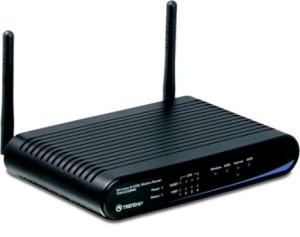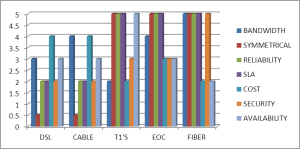Fiber Optic Internet – A Business Owner’s Guide
If you’re looking for ways to grow your business and make more money, here is the perfect solution. Fiber optic internet can be an excellent tool for any entrepreneur. It’s fast, reliable, and very cost-effective. To help you learn more about fiber optics, we’ve put together a complete guide to help you understand what it is, how it works, and why every business owner should have fiber optic internet. Read More
What to Look for in an Internet Provider
.
The Internet has been around for so long, the question of “Should I get the Internet or not?” has changed to “Which Internet service provider (ISP) should I choose”? With so many of them around, and with each one seeming to offer the same product in the same package, it can be difficult- but not impossible- to know what to look for in an Internet provider.

Type of Use
Businesses and individuals look for different things with an Internet provider because of demand, use and capability. Whereas an individual usually just surfs the Net, watches movies and does word processing, a business relies on much more than that, with many more users needing to do their work at the same time. Businesses likelier need Internet with higher bandwidth and bandwidth speeds so that more data can travel more efficiently.
Type of Contract
Going on a contract typically saves money, as your ISP knocks off a few dollars each month in agreement to you sticking with them for a certain length of time. The downside to this, of course, is that you’re locked in with one ISP for one to three years and might pay a penalty to get out. The alternative is to go with an ISP on a monthly basis: you might pay a bit more each month, but you retain your freedom to go with another ISP whenever you want.

Type of Coverage
In the United States, there are dozens of ISPs to choose from and they range in size from local to national. The benefit of going with a nationally-known ISP is that you know exactly what you’re getting, the ISPs have years of reputations behind them, and it’s fairly easy to get parts and service because of how big the company is. Conversely, going with a local company has its pluses, too. Local Internet providers tend to be more competitive because they want to grow and attract a wider customer base, so they’re likelier to offer better deals on a more regular basis. They also haven’t been swallowed up by size, and can usually offer better customer service, treating you like a person instead of a number.
Type of Equipment
To get service started, you need a certain piece of equipment from your Internet provider- a modem. Some ISPs will happily sell or loan you a modem, which comes with pros and cons. While it’s easy and convenient, it also puts more money in their coffers. If you can find an ISP that lets you use your own modem, not only can you control the type and quality of it, but you’ll also pay a lot less.
No matter what you look for in an Internet provider and who you choose to go with, remember that Integrated Communications is here for all your business and personal telecommunications needs. Visit our home page to see the wide range of services we provide.
From Disaster to Recovery (Business Tips for Disaster Recovery)
Fires, floods, tornadoes, oh my! Let’s face it, as business owners and representatives there are many outside factors in which we have little-to-no control over that can create a dip in profit for a few days, or eradicate an entire business structure in a matter of minutes. It’s important to prepare for disasters and protect the assets of your company and your customers. Equipping your company with a pragmatic recovery plan requires knowledge of probable complications that can occur, as well as the necessary steps to implement and test before a disaster strikes. Here are a few questions and points to mull over while preparing your company for disaster:
Budget
How much money are you willing to spend to protect your business?
Although no specific number can ever represent the dream of your business, the people, or the work put in, it’s time to get realistic and determine how much of a budget you can carve out to plan and implement a concrete disaster recovery plan.
How much money will your company lose on a daily, weekly, or monthly basis if and when a disaster occurs?
Be sure to weigh the difference of your companies’ profit with how much money to put into a recovery plan. A small business who can survive a while on their existing customer base may only need to endure a small cost for a few recovery operations; however, a larger corporation, hospital, bank, and so on, will need a more complex blueprint, therefore, requiring more of a disaster recovery budget.
Total Recovery Considerations
What are the most important business assets that need to be accounted for and replaced in order to restore your business and maintain the least possible downtime?
Think about your daily operations and what is utilized in order to minimally and maximally function.
– Office Space: If you already have or will need back-up files hosted in the cloud for all of your business data, how will you access that data? How will your employees?
Consider a budget for a small office space in the case of an emergency that your key employees can work from if need be.
– Equipment: What if all of your phones and computers are damaged? Do you have recovery for your equipment ready in the event no repairs can be made or all equipment is lost?
Perhaps educating yourself on VoIP phone systems will allow you easy and quick access to a phone system for as many employees as necessary. A product such as Velocity Telephone’s Virtual Office can be effortlessly procured in the case of an emergency and will allow for quick voice uptime with an easy plug-and-play functionality. Check out a review on the Velocity Telephone Product: https://www.integratedcom.net/virtual-office-voip-review/
Tested
So you have a disaster recovery plan in place. Your employees have all been notified where to go in the event of an emergency, your carrier has provided you with redundancy in case the power shuts-down, and you’ve got Dave Johnson on standby incase mother nature strikes and you need new phones a.s.a.p. Now what?
Quite simply, test. Practice really does make perfect. Be sure to keep your employees safe first and foremost by providing drills for different disasters. Next, make sure to coordinate with your telecom agent and test your voice and data redundancy. Lastly, touch-base with all of your equipment vendors, customers, etc… to provide them with who to contact in case of an emergency, and how you will contact, inform, and connect with them when a disaster occurs.
Contact us for more information on the types of voice and data back-ups we can offer your company to help you protect your best assets in the face of disaster.
What is VoIP?
What is VoIP?
VoIP (Voice over Internet Protocol) literally translates to a call being made over the same set of rules as the Internet uses; a phone call over your Internet connectivity. However, VoIP is no longer strictly operable through means of the internet alone, like it once was; rather it operates with the same protocol (a set of rules) as the Internet does.
VoIP capable products are considered “plug-and-play” and allow for a phone system to be plugged directly into your data network, allowing your employees to make phone calls from the data connection; keep in mind if you have high call volumes you may want more bandwidth depending on the call quality. While more bandwidth may not be necessary for call quality, ensuring that your voice comes before all other data will ensure business operable call quality.
Many telecom service providers are seasoned and well equipped for the VoIP future that ensues. These providers offer a phone system in order to use VoIP technology, referred to as IP phones. There are many types of IP phones, servicing businesses from a one-man shop to a multi-billion dollar organization with many complex needs and services. (Refer to https://www.integratedcom.net/virtual-office-voip-review/ for a review on a VoIP phone system).
Your VoIP capable phone system also allows for your employees to take their IP phone-set ANYWHERE to work and/or make calls and bypass the long-distance toll by using their new plug-and-play phone and utilizing data connectivity to make their calls – an inter-operable product that works over multiple networks. How is this possible? Your IP phone system comes equip with its own IP address and can be accessed for use at any time and any place by means of the cloud – your service provider will allow for the phone to search the cloud to find the appropriate IP address, allowing for voice service through VoIP.
Be sure to gather information on the different VoIP products to find the one that best fits your company’s current and growing needs. VoIP is a service in which is becoming more relevant and readily accessible, and one we highly recommend here at Integrated Communications.
Ethernet Over Copper – Business Internet with Speed
Ethernet Over Copper – Business Internet (with speed)
The advancements of business internet connections are insurmountable. Just when we get used to a network connection that will bring us reliable speed, another product is released that claims MORE reliability and bandwidth, and all for a cheaper cost. No matter what situation your company is in – needing more bandwidth, having to cut costs, or wanting dedicated-lines without extreme build-costs, Ethernet over Copper (EoC) is a product worth investing in.
EoC is at a comparable price-point to your current T1s; furthermore, offering many of the same benefits of fiber optic internet. EoC is a symmetrical, dedicated, and secure product – definitely a viable market option.
Compare and contrast EoC to other business internet services available:
*Based off of major metropolitan areas (click on image to enlarge)
5 Biggest Benefits of Fiber Optic Internet
Fiber connectivity has some serious benefits for companies of ALL sizes and necessities. While the cost to build fiber can be extensive (depending on location and availability) the benefits are insurmountable. Here are a list of the top 5 benefits of fiber optic Internet for your company:
1. Security – Fiber is the MOST secure network: for example, it is quite possible to attach to a copper line in order to hack into the system, however, fiber connectivity is made out of glass, and the only way to penetrate the system is to break it, which would cause the whole system to go down and in turn would alert you that you have been hacked – rare disruption of connectivity.
2. Speed – Fiber optic internet runs at the speed of light – the fastest transport medium allowing for quick and instant data retrieval.
3. High Bandwidth – Symmetrical bandwidth (same upload speed as download speed) allowing for much longer transmission distances and high signal rates.
4. Private Connection – No other businesses run off the same line as you, hence a PRIVATE connection.
5. NO Electromagnetic Interference – If and when the fiber optic cables need to be run in close or nearby proximity to electrical machinery (especially ones with high-frequency noises), fiber connectivity allows the control signals to be carried without error or interference, making fiber a number one choice for factory and machinery companies.
Contact Integrated Communications for more information regarding fiber optics Internet and it’s availability for your company @ (763)201-8000 or email info@integratedcom.net



